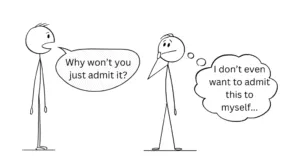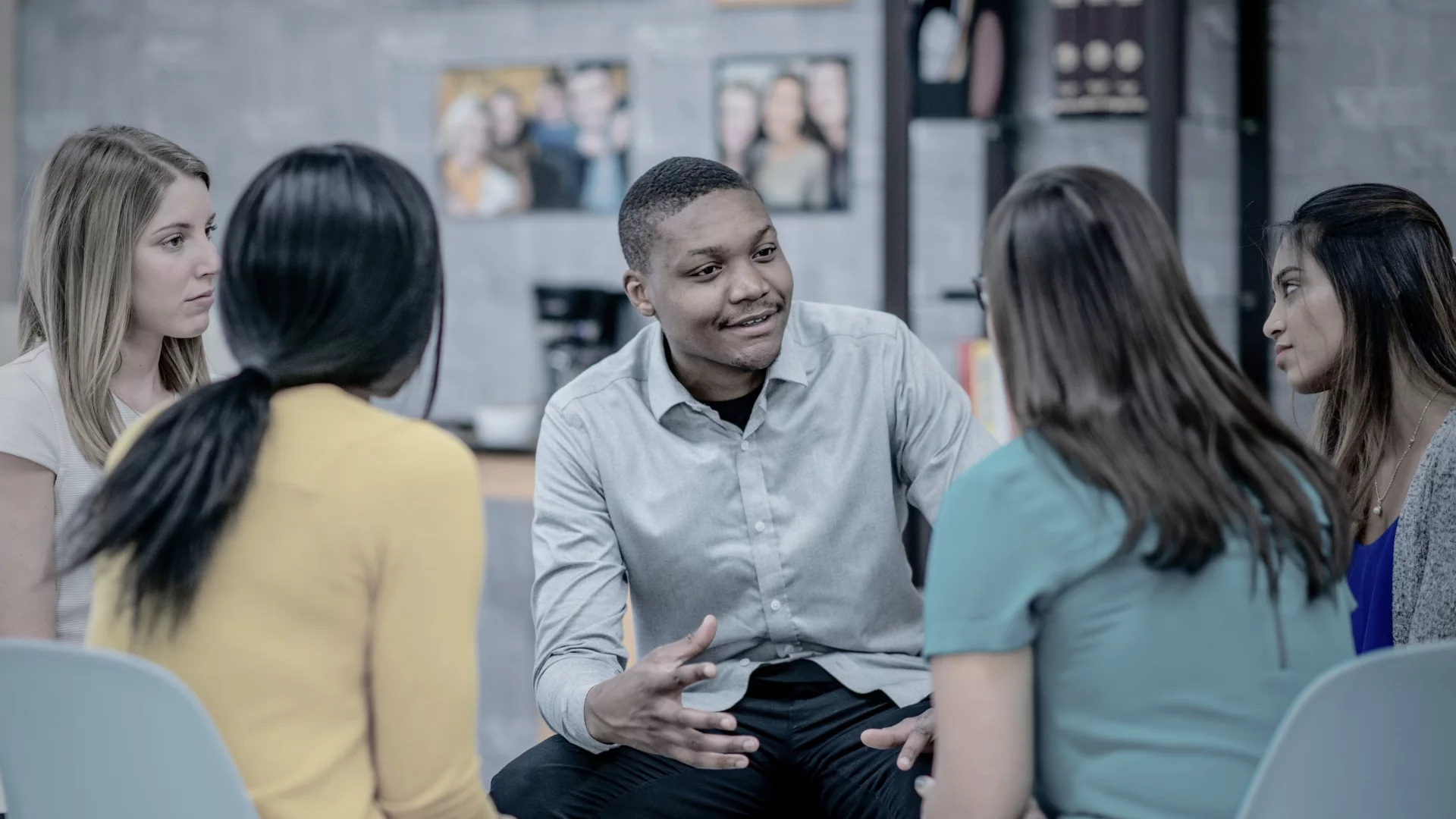The Hidden Barrier to Successful Conversations – and how to solve it…
by Karen Amos
In my last blog, I explored how our own embarrassment can get in the way of successful conversations. This time I’d like to switch this and explore the role of shame and embarrassment for the other person.
When we’re about to have a challenging conversation with someone, particularly if it’s about something they’ve done wrong, it’s easy to focus on our own discomfort and even, annoyance. The fact is, embarrassment and particularly shame, are very powerful emotions. Think back for a moment – we’ve all done things we’re embarraseed about at some point, even ashamed of. Some things we would find almost impossible to tell another human being, or even admit to ourselves. As a result, these emotions often manifest as something completely different – for example anger, blaming others. denial, or obfuscation.
Yet we expect people to fully engage in a conversation with us about this very matter…
It can be difficult from our point of view however. We have our own personal responses going on and particularly when our stress response is kicking in we can be tempted to strike out. You know the feeling – they’ve given you a world of pain and suffering and you’re going to give it back in equal measure. (I’m sure we’d all like to be a better person from time to time, but we’re only human…) If our values and belief are compromised too, this can be another way we ditch the empathy and just push back. We want to see meaningful contrition from the other person.
The problem with this, is it can lead to entrenched standpoints and get in the way of a positive resolution.
So there, is another alternative…. It’s a Coaching Approach.
Now don’t get me wrong, I’m BIG on accountability and people taking personal responsibility – anyone who’s ever attended one of my leadership training courses will tell you that. But this isn’t about letting people ‘off the hook’.
It’s about focusing on the outcome.
This has several benefits, not least of which are that we get well, a good outcome, but also we get to be the person we’d like to be. You know the one who knows they’ve done the right thing and gets to sleep at night. One of the best compliments I ever had as a manager was a member of staff who gave feedback to my manager and said, ‘the thing about Karen is that she’ll tell you if something’s wrong, but if you sort it, she doesn’t keep bringing it up.’ Which leads us to…
Tips to manage the emotion of embarrassment and shame in conversations:
1. Focus on the practicalities – Keep things objective and talk about facts and behaviours, rather than how you feel about this.
2. Get to the point – As per my previous blog, don’t beat around the bush, just get on with the conversation itself. You’ll both feel better when it’s over.
3. Keep your emotions in check – Even if the other person is struggling with this, you’ll feel better for knowing you behaved as well as possible. If you feel the need to vent, seek out a trusted colleague to offload to first.
4. Acknowledge your message might be hard to hear – This shows them you’re not just revelling in their misery and reminds you to be empathic and compassionate in your manner.
5. Use active listening and coaching questions – That way you get to have a proper conversation, not a one-way diatribe and the person is engaged in the issue.
6. Set clear actions and expectations as a result of the conversation – That way the person can concentrate on a positive future, rather than dwelling on what they did wrong. They also know when they’ve resolved the issue
6. Follow up with a brief thanks when the issue is resolved – No need to go into detail, but this can go a long way to helping you all to…
7. Park it! – Unless it’s absolutely relevant, don’t keep referring to the issue again. It’s worth thinking about how we would feel in a similar situation.
I hope you’ve found these tips helpful. If you’d like to develop People Management or Difficult Conversations skills for yourself or your team, click on the link for your sector below, to check out our latest training offers.
If you’ve any questions, or would like to discuss alternatives, do get in touch for an informal chat. EMAIL US, or book in an informal chat using the button below. We’ll find out about the support you need and provide you with a no-obligation quote.
 Karen Amos is an executive coach and Director and Founder of BrightBird Coaching & Training. She supports business owners, managers and education leaders to get the best out of themselves and their teams. She brings a down-to-earth approach to improving working lives through better leadership, communication and working relationships.
Karen Amos is an executive coach and Director and Founder of BrightBird Coaching & Training. She supports business owners, managers and education leaders to get the best out of themselves and their teams. She brings a down-to-earth approach to improving working lives through better leadership, communication and working relationships.
Tel: 07714 855757 or email: [email protected][/vc_column_text][/vc_column][/vc_row]
You May Also Like
Feeling Nervous Around Difficult Conversations? Try this…
May 29, 2025
A common barrier to successful difficult conversations is our feeling of…
Balancing support and challenge in difficult conversations…
March 19, 2025
A frequent question, is how to tackle a difficult issue with staff and still…
Changing Mindsets to Workload and Wellbeing…
February 22, 2025
A coaching approach to wellbeing and time management allows teams to develop…
5 Ways to Build Accountability…
January 20, 2025
If you're feeling frustrated with a lack of accountability and personal…






